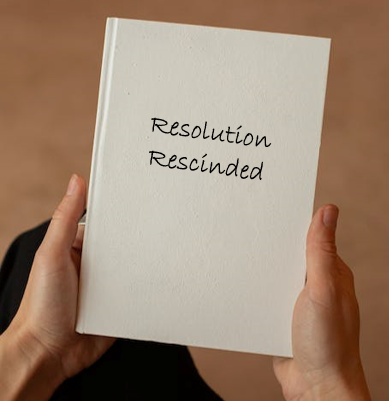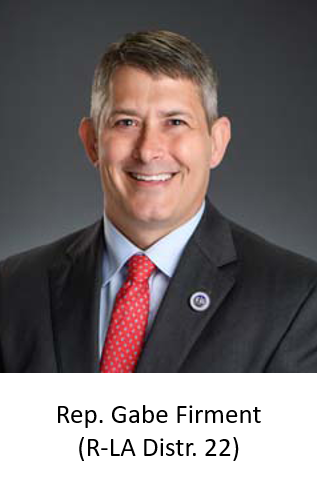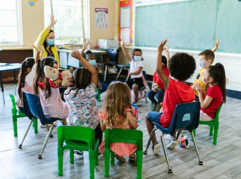Education Briefs
The duly elected Francis Howell School Board members in St. Charles County, Missouri, voted 5-2 on July 20 to revoke a resolution allegedly against racism that is in itself racist. The resolution was adopted by the previous board in 2020 after the death of George Floyd and the Black Lives Matter riots in Minneapolis. The St. Louis Post-Dispatch reported that its adoption followed on the heels of a protest march in St. Charles County that attracted about 2,000 protestors, some of whom claimed Francis Howell School District’s curriculum and hiring and  disciplinary practices were discriminatory against “people of color.” The five board members who voted to rescind the resolution were elected in 2022 and 2023, part of a wave of local elections that favored pro-parent and anti-woke policies. The new board rejected the resolution as “woke activism” and, according to the Post-Dispatch, “drafted an alternative ‘against all acts of racial discrimination, including the act of promoting tenets of the racially divisive Critical Race Theory, labels of white privilege, enforced equity of outcomes, identity politics, intersectionalism, and Marxism ... the Board hereby declares its commitment to establishing, supporting, and sustaining a culture of racial harmony and goodwill districtwide.’” The rescinded resolution, which will be removed from school hallways, states that racism is “a crisis that negatively impacts our students, our families, our community, and our staff,” and that “[w]e will promote racial healing, especially for our Black and brown students and families. We will no longer be silent. We are committed to creating an equitable and anti-racist system that honors and elevates all, but one that also specifically acknowledges the challenges faced by our Black and brown students and families.” The two board members who supported the resolution served on the board when it was adopted. The new board members were backed by the pro-parent political action committee called Francis Howell Families.
disciplinary practices were discriminatory against “people of color.” The five board members who voted to rescind the resolution were elected in 2022 and 2023, part of a wave of local elections that favored pro-parent and anti-woke policies. The new board rejected the resolution as “woke activism” and, according to the Post-Dispatch, “drafted an alternative ‘against all acts of racial discrimination, including the act of promoting tenets of the racially divisive Critical Race Theory, labels of white privilege, enforced equity of outcomes, identity politics, intersectionalism, and Marxism ... the Board hereby declares its commitment to establishing, supporting, and sustaining a culture of racial harmony and goodwill districtwide.’” The rescinded resolution, which will be removed from school hallways, states that racism is “a crisis that negatively impacts our students, our families, our community, and our staff,” and that “[w]e will promote racial healing, especially for our Black and brown students and families. We will no longer be silent. We are committed to creating an equitable and anti-racist system that honors and elevates all, but one that also specifically acknowledges the challenges faced by our Black and brown students and families.” The two board members who supported the resolution served on the board when it was adopted. The new board members were backed by the pro-parent political action committee called Francis Howell Families.
Louisiana has become the 20th state to safeguard children from life-altering transgender surgeries, overriding Democrat Governor John Bel Edwards’ veto of the Stop Harming Our Kids Act (HB 648). According to Fox News, the  Republican majority in the Louisiana House voted 75-23 in a special session on July 18 to override the governor’s veto of the bill, which will prohibit doctors in the state from performing gender-reassignment surgeries and prescribing or administering hormones and puberty blockers to minors. State Representative Gabe Firment, the bill’s sponsor, issued a statement following the successful House action: “HB 648 has passed both chambers of the state legislature with veto-proof majorities, and the people of Louisiana have made it clear that our children are worth fighting for.” In vetoing the bill, Governor Edwards claimed that “sex-change surgeries on minors are not occurring in his state and that the bill is being fueled not by evidence of a growing problem but by ‘propaganda and misinformation generated by national interest groups.’” But the Center for American Liberty’s Mark Trammell told Fox News Digital that the governor’s failed veto “shows that he cares more about appeasing special interest groups than protecting children from medical procedures and drugs that physically mutilate and sterilize.”
Republican majority in the Louisiana House voted 75-23 in a special session on July 18 to override the governor’s veto of the bill, which will prohibit doctors in the state from performing gender-reassignment surgeries and prescribing or administering hormones and puberty blockers to minors. State Representative Gabe Firment, the bill’s sponsor, issued a statement following the successful House action: “HB 648 has passed both chambers of the state legislature with veto-proof majorities, and the people of Louisiana have made it clear that our children are worth fighting for.” In vetoing the bill, Governor Edwards claimed that “sex-change surgeries on minors are not occurring in his state and that the bill is being fueled not by evidence of a growing problem but by ‘propaganda and misinformation generated by national interest groups.’” But the Center for American Liberty’s Mark Trammell told Fox News Digital that the governor’s failed veto “shows that he cares more about appeasing special interest groups than protecting children from medical procedures and drugs that physically mutilate and sterilize.”
The Minnesota Department of Education has a new “LGBTQ education specialist who called for teachers to discuss nonbinary identities with preschoolers” as far back as 2019, when he was the LGBTQ program director for Minneapolis Public Schools (MPS). On June 17, The Daily Caller reported that Jason Bucklin, an LGBT activist, “now plays a major role in promoting LGBT curriculum and policies in schools throughout the state.” In a March 2019 #EDTalksMN event on Creating Inclusive Classrooms, Bucklin lectured about discussing sexual orientation with kindergarteners. He claimed: “We’ve been having questions about how do we explain nonbinary identities to our preschoolers? If a teacher doesn’t identify as a boy or a girl, how do we explain that to preschoolers who are just learning that there’s only boys and girls?” He recommended promoting “children’s books” about the subject as a solution, but many parents  might question what business it is of teachers of young children to broach such subjects. Bucklin went on to assert that if teachers don’t intervene and [indoctrinate] young children about “gay” and “nonbinary” lifestyles, then the kids will assume that “gay” means “something bad.” He continued: “So what the result is, for six years, until we think it’s developmentally appropriate to talk about it in a certain way; for six years they get to develop a negative connotation between the word ‘gay’ and something bad. And then in sixth grade we’re supposed to untangle that ... we’ve let them for six years learn a negative connotation ... unless we interject.” Again, on what authority do teachers interject sexual topics — certainly not on parental authority in most cases. And the assumption that young children will automatically associate the word “gay” with something negative unless teachers intervene screams of a lame excuse to introduce the LGBT agenda. Yet Bucklin is the person who now has the power of the state’s department of education behind him to help schools “create LGBTQ school inclusion policies and practices using a racial equity lens to create a safer and more affirming learning environment for LGBTQ students.” His position “also involves implementing the policy initiatives of the LGBT activist group, the Gay, Lesbian, and Straight Education Network (GLSEN), including “comprehensive policy, educator support, student-led clubs and inclusive curriculum.” Parents beware!
might question what business it is of teachers of young children to broach such subjects. Bucklin went on to assert that if teachers don’t intervene and [indoctrinate] young children about “gay” and “nonbinary” lifestyles, then the kids will assume that “gay” means “something bad.” He continued: “So what the result is, for six years, until we think it’s developmentally appropriate to talk about it in a certain way; for six years they get to develop a negative connotation between the word ‘gay’ and something bad. And then in sixth grade we’re supposed to untangle that ... we’ve let them for six years learn a negative connotation ... unless we interject.” Again, on what authority do teachers interject sexual topics — certainly not on parental authority in most cases. And the assumption that young children will automatically associate the word “gay” with something negative unless teachers intervene screams of a lame excuse to introduce the LGBT agenda. Yet Bucklin is the person who now has the power of the state’s department of education behind him to help schools “create LGBTQ school inclusion policies and practices using a racial equity lens to create a safer and more affirming learning environment for LGBTQ students.” His position “also involves implementing the policy initiatives of the LGBT activist group, the Gay, Lesbian, and Straight Education Network (GLSEN), including “comprehensive policy, educator support, student-led clubs and inclusive curriculum.” Parents beware!
Homeschooling families persuaded Minnesota lawmakers to strike new standardized testing requirements from both the House and Senate versions of a bill. According to HSLDA, the proposed measures would have required homeschooling families “to submit the results of annual standardized tests to local public school superintendents,” and would have granted these officials “the authority to request ill-defined ‘ protocols’ regarding testing, as well as proof that the protocols had been followed.” Amy Buchmeyer, staff attorney for the Home School Legal Defense Association, said had the bill passed, it would have been the most restrictive in the nation. “It could have undermined one of the many unique benefits of homeschooling,” she said, “the ability of parents to customize educational programs [that] best meet the needs and interests of individual children.” Homeschool proponents swung into action once the testing requirement came to light. Rob Prigge, executive director of the Minnesota Association of Christian Home Educators (MÂCHÉ) praised the impression homeschool families made on lawmakers “during a pair of rallies at the capitol.” He noted: “I’m not aware of another example where the majority of lawmakers relented from what they had planned to do.” Two homeschooling moms were asked to testify, and Prigge said they were “persuasive” because “they were able to discuss the direct impact the law would have on their families and homes.” HSLDA credits the value of “larger advocacy groups” like MÂCHÉ in researching and informing homeschooling families about challenges such as the Minnesota legislation. MÂCHÉ leadership combs through bills and “is judicious in determining the proper level of response for dealing with legislation that might curtail homeschool freedom.” Prigge vows his organization will continue to work with state policymakers “to represent the group’s families and preserve their rights and protections.”
protocols’ regarding testing, as well as proof that the protocols had been followed.” Amy Buchmeyer, staff attorney for the Home School Legal Defense Association, said had the bill passed, it would have been the most restrictive in the nation. “It could have undermined one of the many unique benefits of homeschooling,” she said, “the ability of parents to customize educational programs [that] best meet the needs and interests of individual children.” Homeschool proponents swung into action once the testing requirement came to light. Rob Prigge, executive director of the Minnesota Association of Christian Home Educators (MÂCHÉ) praised the impression homeschool families made on lawmakers “during a pair of rallies at the capitol.” He noted: “I’m not aware of another example where the majority of lawmakers relented from what they had planned to do.” Two homeschooling moms were asked to testify, and Prigge said they were “persuasive” because “they were able to discuss the direct impact the law would have on their families and homes.” HSLDA credits the value of “larger advocacy groups” like MÂCHÉ in researching and informing homeschooling families about challenges such as the Minnesota legislation. MÂCHÉ leadership combs through bills and “is judicious in determining the proper level of response for dealing with legislation that might curtail homeschool freedom.” Prigge vows his organization will continue to work with state policymakers “to represent the group’s families and preserve their rights and protections.”
Want to be notified of new
Education Reporter content?
Your information will NOT be sold or shared and will ONLY be used to notify you of new content.
Click Here
Return to Home Page
